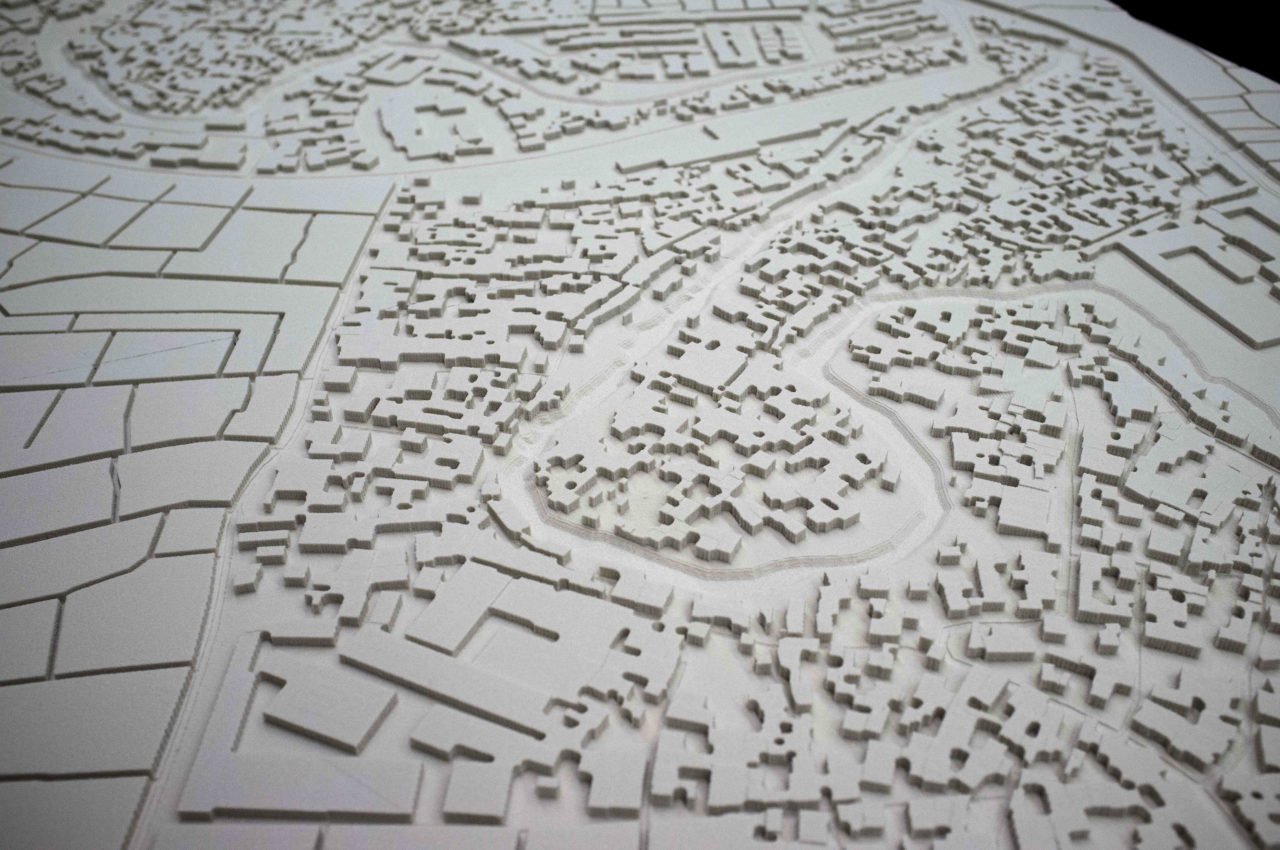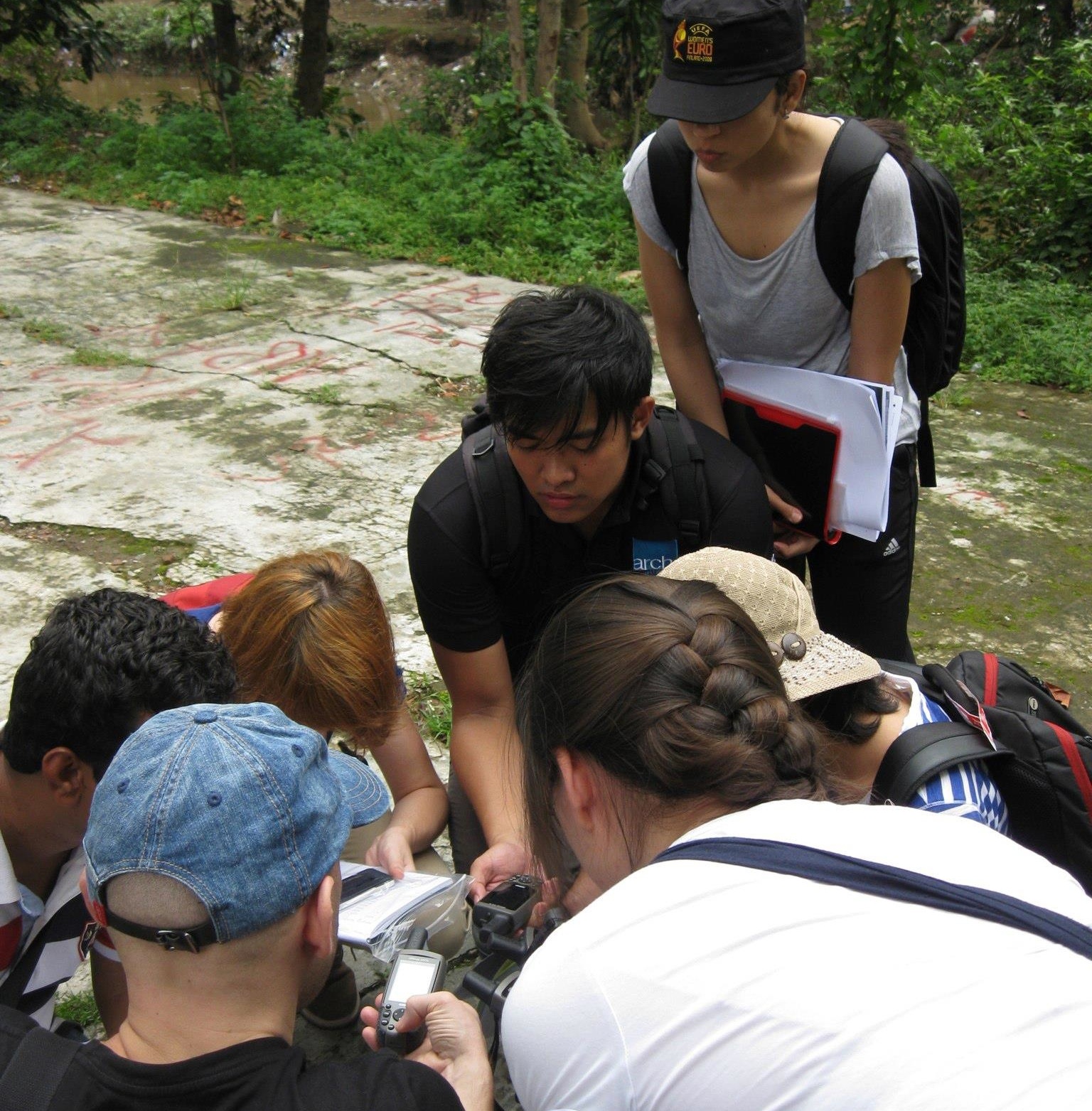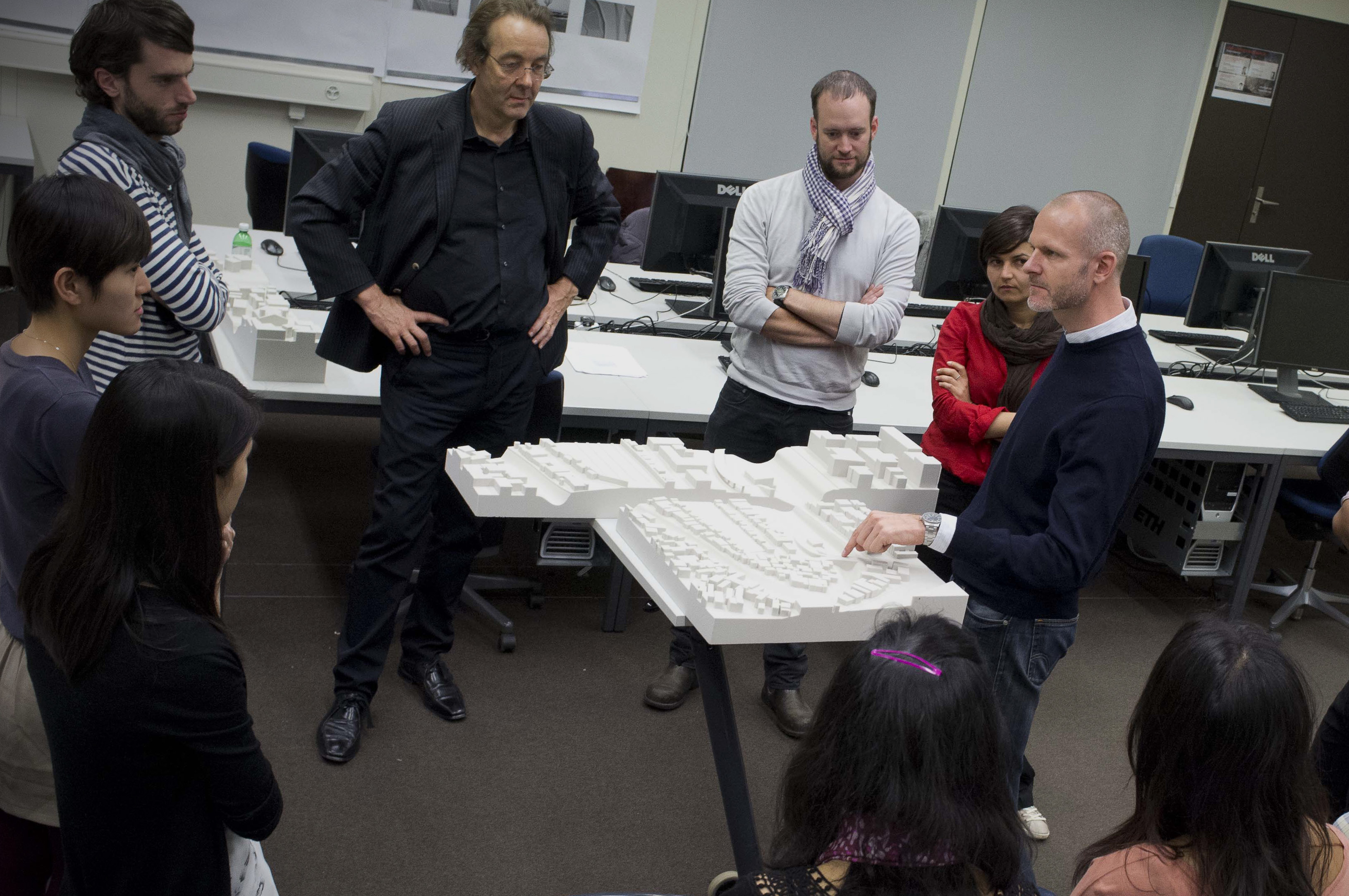
Nearly one year ago, the ongoing research collaboration Future Cities Laboratory (FCL), a partnership between the ETH Zurich and National University of Singapore (NUS), began its work. On the newly built Create Campus in Singapore, Module 7: Landscape Ecology, under the direction of Christophe Girot, brings together a team including landscape architects, planners, and hydrologists amongst others to meet the challenges of the Ciliwung River catchment in Indonesia. The project provides excellent insight into the active process of knowledge transfer – as the methodologies and technologies of the ETH team combine and adapt to local culture, logistics, and high-density living with low-density data, requiring new responses.
The founding principle of the FCL initiative is knowledge transfer, and the Landscape Ecology module is a model example of this exchange process. The module addresses the challenges of water management at various points along the river, which runs through the city of Jakarta, a so called ‘Megacity’ that now contains over 10 million inhabitants. The first stage of the module addresses the stretch of the river within the city of Jakarta, where the Ciliwung threatens densely populated zones of Jakarta with high water levels on an annual basis. This site was chosen as the focus for a teaching collaboration between Prof. Christophe Girot and Prof. Joerg Rekitke, head of the local MLA programme at the NUS. The site at Kampung Melayu was chosen for its combination of high-water problematics and dense urban fabric; it had great potential for spatial transformation. The students were encouraged to directly engage the Ph.D. researchers working on the project for background data and data preparation. Conversely, the students engaged in site visits, which were organized to produce detailed documentation of the area, further benefitting the research project.
The early focus of the module was to address the acquisition of site data, which in many cases did not exist for the project sites, was incomplete, or was unverified. From the onset, the Landscape Ecology module addressed this lack of local site data directly, through collaborations with local university students for logistical support and the work of studio participants on site to survey, measure, and verify site data. Photogrammetry techniques were combined with locally developed procedures in architectural typology mapping and detail-scale measurement using handheld devices. The first period of local exchange was marked by a week-long CNC milling workshop, in which the students learnt the skills of modelling and milling complex urban and topographical systems. These models were in turn developed and refined using knowledge of local built and landscape typologies, assisted by additional cultural and language expertise.
A visualisation workshop combined locally generated GIS data with intuitive modeling and visual representation tools, allowing the detailed scale of the Ciliwung riverbanks to be reassessed. This combined topographical sculpting tools with photogrammetry in order to simultaneously deal with the urban and human scales. The studio was completed with a final workshop, in which the detailed development models of the Kampung Melayu were further developed, detailed, and CNC-milled for exhibition in Singapore. The resulting synthesis of GIS techniques, typology research, modeling and visualisation workshops combined methodological expertise from the ETH Zurich with cultural and local architectural system knowledge from the region.
Results
The final MLA project of 2011/2012 is now complete, with the results in Kampung Melayu combined with the Landscape Ecology module research on display starting in July at the exhibition ‘Singapore International Water Week: Water Solutions for Livable and Sustainable Cities’, at the Marina Bay Sands, Singapore. The studio-based collaboration parallel to the Landscape Ecology module continues in the coming semesters, with both the NUS MLA programme, and the ETH Undergraduate Design Studio focussing on Kampung Melayu in Jakarta.
Teaching team: Prof. Christophe Girot, Alexandre Kapellos, James Melsom, Prof. Joerg Rekitke (NUS)

